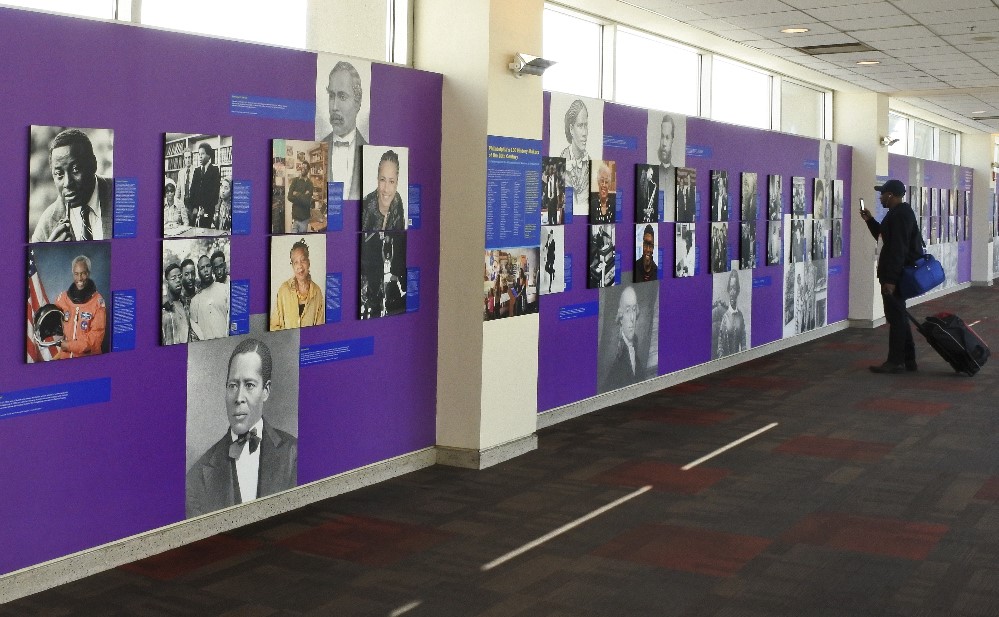In Partnership with the African American Museum of Philadelphia
February 1, 2017 - October 24, 2017

This exhibition celebrates Philadelphia’s African American history makers of the 20th century and includes 100 selected individuals from various decades who have dedicated their lives to a variety of disciplines including the arts, athletics, civil rights, politics, religion, and scholarship.
Africans and African Americans have been part of Philadelphia’s history since its earliest days. When Europeans claimed settlement in the 1630s, enslaved people of African descent came to serve them. Decades later, in 1681, William Penn arrived to govern Pennsylvania and founded Philadelphia on the principles of equality, peace, and tolerance. In 1701, Penn wrote The Charter of Privileges, signed in Philadelphia, which granted citizens of Pennsylvania certain rights. Yet, many in this new land practiced slavery and there were no rights or privileges for Africans and African Americans.
In the late 18th century, two of the three Charters of Freedom – The Declaration of Independence (1776) and the Constitution (1787) – were also written and signed in Philadelphia. As the Declaration of Independence stated, “We hold these truths to be self-evident, that all men are created equal…” At this time in American history not all men or women were equal as the United States was the largest slaveholding country in the world. The moral issue of slavery deeply divided the country eventually resolved by America’s Civil War (1861-1865) – a battle between free and slave states.
Throughout the 17th and 18th centuries, Philadelphia was home to many civil-minded residents who were abolitionists and suffragettes. The city was considered a “center for abolitionism.” Historian James Wolfinger wrote, “African Americans came because of the black community’s reputation as a vibrant political, cultural, and economic center, and Philadelphia, true to its antislavery reputation, became a major stop on the Underground Railroad...”
Historically, Philadelphia has maintained one of the country’s largest African American populations even though the city has experienced eras of racial discrimination and racial violence. This exhibition honors the legacies of selected Philadelphia-area African Americans of the 20th century as well as a selection of abolitionists and leaders of the black community who came before them.
Leah Douglas Chief Curator Philadelphia International Airport


